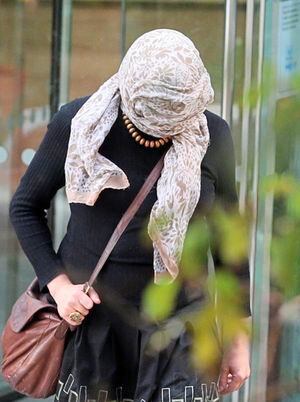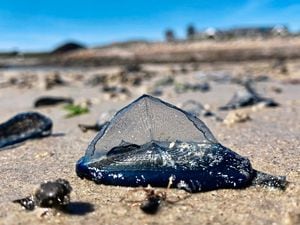‘Eccentric’ woman tried to make gunpowder
AN ‘ECCENTRIC woman with an active imagination’ has been handed a suspended prison sentence in the Royal Court after attempting to make gunpowder.

Jessica Sinclair, 45, who grew up in Guernsey, admitted possessing and making an explosive black powder in suspicious circumstances and without a legal reason, either in Guernsey or elsewhere.
The court heard how the defendant, who previously gave an address in Bristol, had searched whether it was legal to make the explosive before making a small quantity of black powder in Bristol two years ago.
When Sinclair’s computer was examined it was found she had shown an interest in Isis and gunmen and had also created herself a fake MI6 swipe card under the name Jessica St Clair.
She had also searched whether it was legal to make gunpowder in the UK and whether graphite could be used in gunpowder.
On YouTube she had looked at videos about how to make black powder bottle bombs and how to make remote bluetooth firework igniters.
Defence advocate Liam Roffey said his client had done the experiment due to an interest in chemistry.
‘She had no desire to break the law,’ he said.
‘She did not wish to put anybody in danger.’
The court heard how Guernsey Police had searched the Vale property where Sinclair was staying last March for an unconnected reason and found collections of chemicals in boxes in various cupboards. There were also two handwritten notes, which referred to mixing and milling the items, as well as chemical formulae.
The items were sent to a specialist forensic explosive laboratory in Kent. The chemicals were found to include sulphur, graphite and potassium chloride. A pestle and mortar, a glass container and some metal balls, which could have been used for milling, were found to have black powder residue.
The notes showed the ratios for how to make gunpowder.
Crown Advocate Chris Dunford said making gunpowder was a dangerous activity.
Defence Advocate Roffey quoted Sinclair’s probation report to the court.
‘I believe Miss Sinclair to be an eccentric individual with an active imagination,’ he said, quoting the report.
‘But I do not believe her internet searches indicate any sinister intent.’
He said the searches came about from ‘clickbait’ articles and a reckless curiosity.
He described how Sinclair had grown up in Guernsey and moved away in 2012 to the UK so she could access gender reassignment services and higher education. She did a science access course before starting a biochemical science degree at the University of Bristol.
However, she had to drop out to deal with mental health issues.
While she was signed off she continued to show an interest in chemistry and made her own toothpaste and essential oils. In 2016, she tried to make black powder.
Advocate Roffey said his client had done internet searches and believed from internet forums that making very small amounts of black powder was legal.
He highlighted that his client had used graphite, rather than the more reactive charcoal, which would have led to a larger explosion. He said this was intentional to ensure there was not a big explosion. She had only made one lot of black powder.
‘All it really did... was melt,’ he said.
‘The use of graphite massively reduced the risk to the experiment.’
He said there was a very low likelihood of his client reoffending.
Judge Russell Finch said the jurats noted that there was no sinister intent on the facts agreed and the sentence would have been different if there had been. He added that this was a very unusual case and it was the first case of its type to come before the court.
He sentenced her to 18 months in prison for each of the counts, to run concurrently, suspended for two years.





